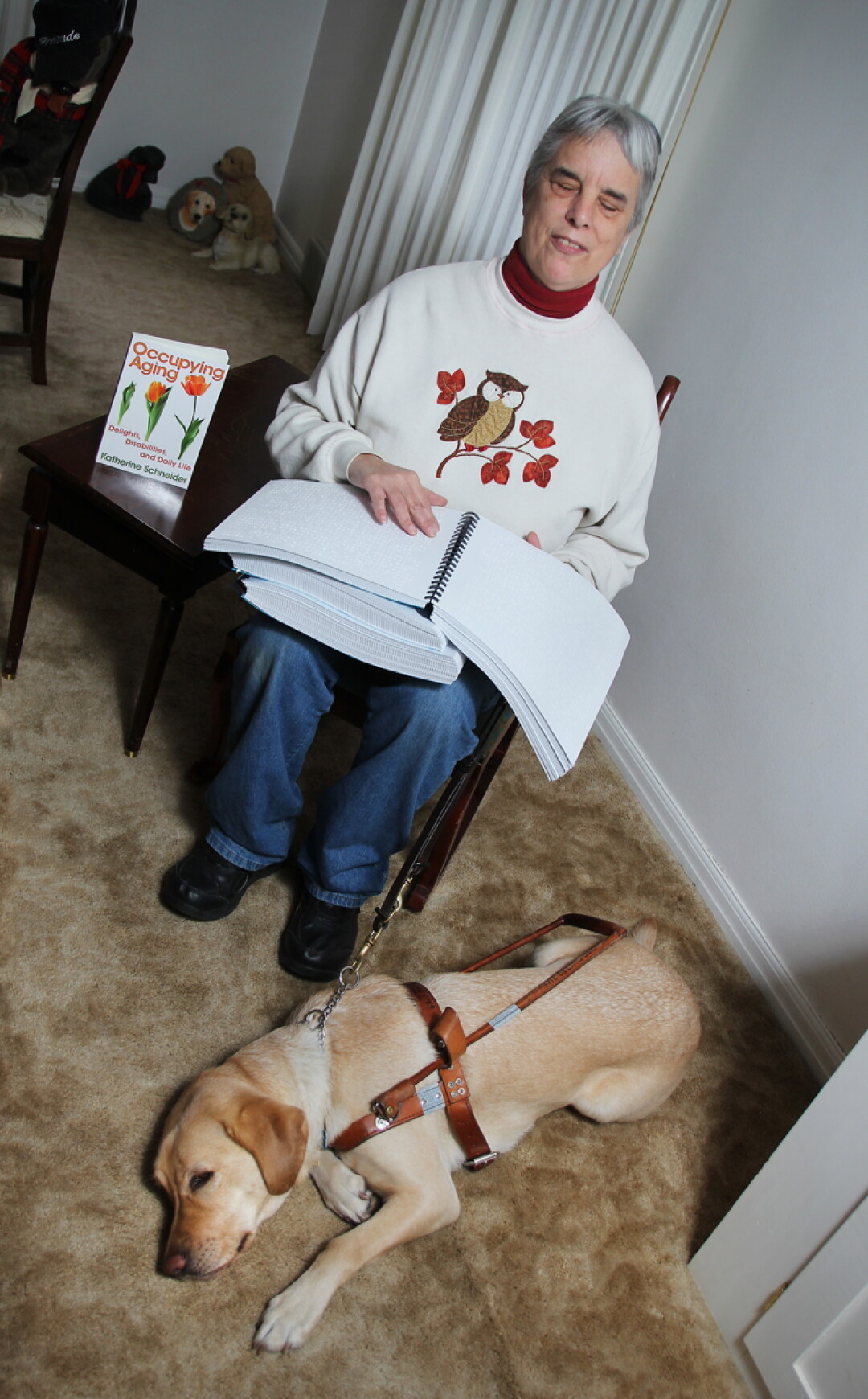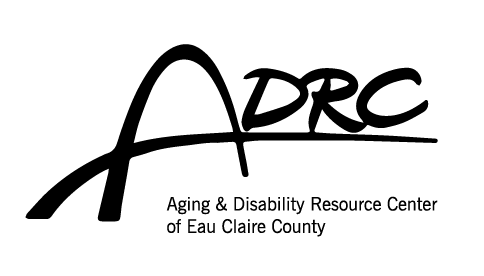The Journey Forward With a New Disability
how you can make the most of what life throws at you after age 65
Katherine Schneider, photos by Andrea Paulseth

When we plan for life after 65, few of us think about the fact that half the people over 65 develop a disability. Laws about access, agencies like the Aging & Disability Resource Center and the Western Wisconsin Center for Independent Living can help with access and gizmos for various disabilities. But what about the mental and emotional gymnastics of taking on a new disability without losing your plans for the good life?
Because I’ve lived with blindness all my life and fibromyalgia since middle age, I wrote Occupying Aging: Delights, Disabilities and Daily Life to show what it’s really like on a daily basis and share a few tricks of the trade for dealing with disabilities and peoples’ attitudes about them. Here’s the executive summary, without all the fun stories!
The realities of life with a disability can be lumped into six categories outlined below:
You have to ask and advocate for what you need at all times
Most of us hate to ask, so this is a tough one. But the alternative of not getting what you need and being resentful or resigned is even worse. After all, you know and/or are figuring out what your new needs are, so you are in the best position to state them. At a recent meeting, I heard someone say at the end: “I couldn’t hear a thing.” I ached for him, but wouldn’t yelling out “Louder, please” when the first quiet speaker spoke have saved him grief and possibly helped others as well? Ask and ask again!
There’s a bubble of isolation around those of us with disabilities, particularly visible ones
People don’t want to say or do the wrong thing, so they hang back. Try to not take the bubble personally and keep reaching through it. This is one way service animals are helpful: Even if people know not to distract them when working, the smiles come through the bubble.
It costs more to have a disability
A lot of the adaptive stuff is not paid for by insurance or the government, and it’s only manufactured by a few companies, so it’s spendy. But if it allows you to go about The Good Life more like you used to, invest in it if you possibly can afford it! Of course, there’s a learning curve and it isn’t fun to be dragging extra stuff with you. Takes you back to the days when you dragged a diaper bag, a stroller, etc., with you when you took your family out for a simple grocery store run, doesn’t it?
You will face discriminations, little and big, when you develop a disability
Sometimes it’s word choices like “I’ll put you here?” instead of “Would you like to sit here?” Sometimes people will talk to your nondisabled spouse or friend instead of you. It’s OK to say “ouch” and ask for it to be said or done differently, especially if it’s a friend or a service provider who “should” know better. For the bigger discriminations, you’ll become proficient in negotiating skills and/or consult agencies and experts to help with those skills.
Disabilities are mostly every day and they take extra energy!
Your prioritizing skills and your self-care skills will be honed. A disability helps you focus on what’s really important to you. Support groups (in person or online) and reading about others’ methods of coping can help. Don’t forget that bunch of good advice grandma gave about eating right, sleeping enough (naps count), exercising, and contacting your Higher Power!
Find the good in the experience of disability
You won’t see it right away and nobody else can give it to you, but you will find some good if you keep looking. Does it make you more sensitive to others’ needs? Does it help you focus on the important things? Does it heighten your sense of accomplishment? Does it make you more aware of the interdependence of us humans? And last but not least, is there some fun in it, or at least a few funny stories?
Welcome to Occupying Aging with a disability onboard!
Katherine Schneider, PhD, is a retired clinical psychologist and an author. Follow her blog at kathiecomments.wordpress.com. Email her at schneiks@uwec.edu.


